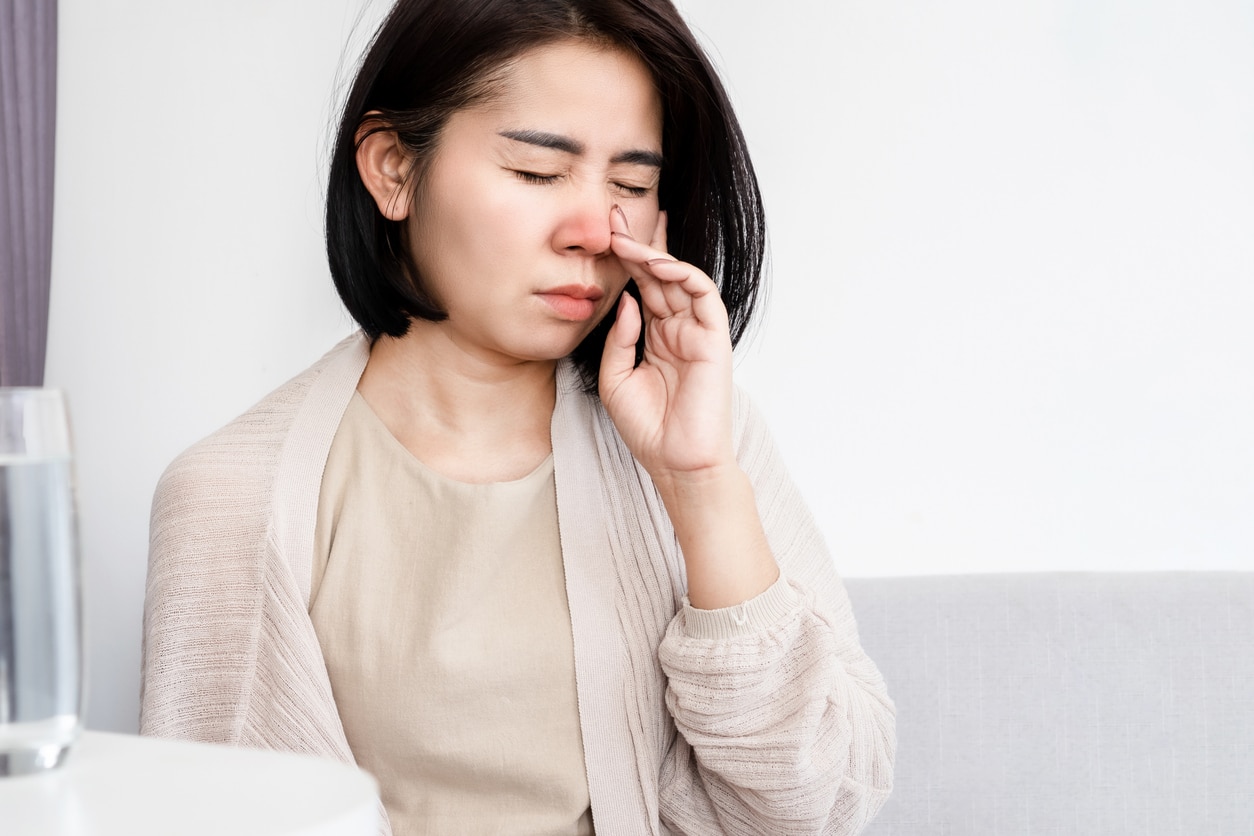A stuffed-up nose sounds like a minor symptom but can be frustrating and annoying. If your nose is constantly stuffed up, it is likely caused by an underlying condition. Four common conditions that cause a stuffy nose are allergies, sinusitis, nasal polyps and the common cold.
Allergies

Allergies are an immune system overreaction to a normally harmless substance (allergen). When you encounter an allergen you’re sensitive to, your body releases a substance known as histamine. The release of histamine causes the symptoms associated with allergies, including but not limited to:
- Sneezing
- Itchy, watery eyes
- Hives
- Anaphylaxis
- Stuffy or runny nose
Nearly 50% of patients with allergies experience symptoms for more than four months of the year, with nasal congestion most frequently being the predominant symptom.
Practicing allergen avoidance is one of the fastest ways to stop allergy-induced stuffy nose. After identifying your allergens with a skin or blood test, you can define your allergen avoidance plan. For instance, if you’re allergic to pollen, avoid Brittlebank Park on high pollen count days.
Sinusitis
Sinusitis, more commonly called a sinus infection, is an inflammation of the tissues in your sinuses, the spaces behind the forehead, cheeks and nose. A sinus infection may have symptoms including but not limited to:
- Mucus dripping into the throat
- Pain in the teeth
- Ear pressure
- Fever
- Facial pressure
- Cough
- Stuffy or runny nose
Sinusitis usually resolves itself after 10 days, but a long-lasting infection may require antibiotics, prescription-strength medication, surgery or other treatment options.
Mild cases of sinusitis may be treated at home with methods including:
- Decongestants
- Over-the-counter allergy medication
- Nasal saline rinses
- Drinking plenty of fluids
Nasal Polyps
Nasal polyps are painless growths in the nose or sinuses. While small nasal polyps may not cause symptoms, larger growths can block the nose, creating the symptoms of a stuffy nose. Several medicines that may be effective in shrinking polyps include:
- Nasal steroids
- Biologic medicines
- Oral steroids
- Allergy medicines
If your polyps are causing adverse side effects and medicine is unsuccessful in shrinking them, your ear, nose and throat (ENT) specialist may recommend surgery.
The Common Cold
The common cold is usually a harmless virus but can be very annoying. Symptoms may include:
- Low-grade fever
- Body aches
- Headache
- Sneezing
- Coughing
- Sore throat
- Runny or stuffy nose
Most people recover from a cold in seven to 10 days, but symptoms may last longer in some. Your treatment options may include but are not limited to:
- Drinking plenty of water
- Running a humidifier
- Saline rinse
- Get plenty of rest
- Warm compresses
Treating the underlying condition is the best way to prevent a stuffy nose from getting in the way of a nice day. For more information on managing your stuffy nose, contact Charleston ENT & Allergy today to make an appointment with one of our specialists.
